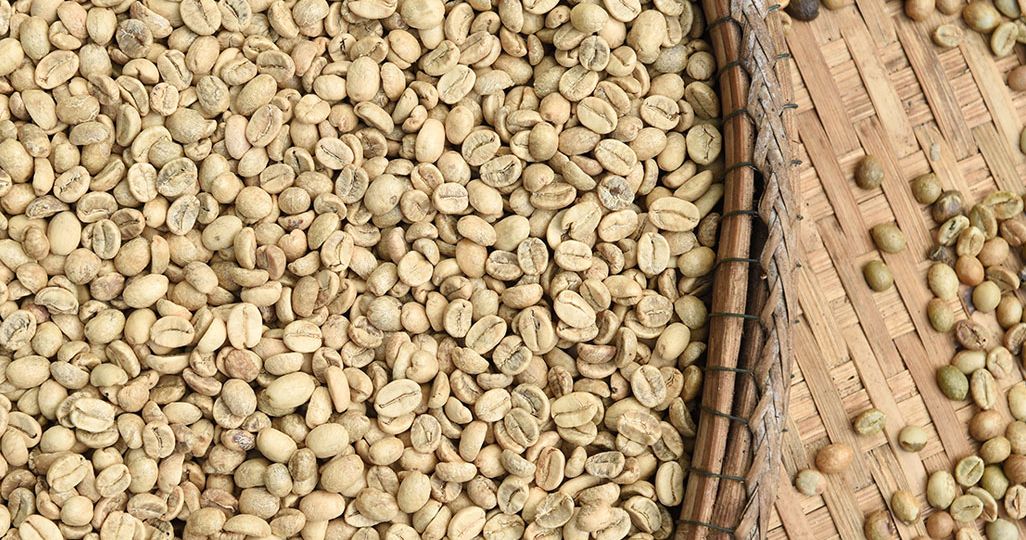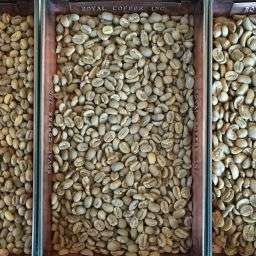
Unroasted coffee beans, commonly referred to as green coffee beans, serve as the raw foundation from which all coffee products are derived. Their significance extends beyond mere agricultural produce; they embody the essence of global coffee culture and industry.
The transformation of these green beans through roasting unlocks the rich aromas and flavors coffee lovers cherish. Their bulk purchase and sale significantly influence market dynamics, pricing, and the coffee industry’s sustainability efforts.
Types of Bulk Unroasted Coffee Beans
Overview of Coffee Bean Varieties
The world of coffee is vast and varied, with major coffee-producing regions including Africa, Central America, South America, and Indonesia. Each region offers beans with unique flavor profiles influenced by the local climate, soil, and cultivation practices. African beans, such as Ethiopian Yirgacheffe, are renowned for their floral and fruity notes, while Central American countries like Costa Rica produce beans with a perfect balance of acidity and sweetness.
South American giants like Colombia are famous for their smooth, mild coffees, whereas Indonesian coffees, such as those from Sumatra, are prized for their full body and earthy flavors. Key varieties like Ethiopian Yirgacheffe, Colombian Supremo, and Kenya AA highlight the diversity and richness of coffee available worldwide.
Specialty and Organic Options
The demand for organic, fair trade, and specialty coffee options has risen sharply, driven by consumers’ growing awareness of environmental and ethical considerations. Organic coffee is cultivated without synthetic fertilizers or pesticides, emphasizing ecological balance and biodiversity.
Fair trade certifications ensure that coffee farmers receive a fair price for their harvest, promoting social equity and community development. Specialty coffees, distinguished by their superior flavor and quality, offer a unique tasting experience. These options reflect the coffee industry’s move towards more sustainable and ethical practices, catering to a market that values quality, transparency, and sustainability.
Sourcing Bulk Unroasted Coffee Beans
Sourcing high-quality bulk unroasted coffee beans is a critical step for coffee roasters and enthusiasts alike. The quality of the bean directly influences the flavor and aroma of the final coffee product. Direct trade practices involve buying straight from the producers, allowing for more transparent and ethical transactions.
This method ensures fair compensation to farmers and fosters long-term relationships. Cooperatives, groups of coffee producers working together, provide a reliable source of quality beans while supporting community development and sustainability. Importers play a crucial role in the coffee supply chain, bridging the gap between coffee growers in producing countries and roasters worldwide.
They are responsible for selecting, importing, and distributing coffee beans, often focusing on specialty and organic options. The importance of transparency and ethical sourcing in the coffee chain cannot be overstated, as it ensures the sustainability of the industry and the well-being of the farmers.
Quality Indicators
Understanding quality indicators, such as grading systems and cupping scores, is essential in sourcing bulk unroasted coffee beans. Grading systems vary by country but generally assess the physical attributes of the beans, such as size, density, and defect count, which can influence the coffee’s flavor and aroma.
Cupping scores, assigned by professional tasters, evaluate the coffee’s taste profile, including acidity, body, flavor, and aroma. A higher cupping score indicates a higher quality coffee, often translating into a more complex and desirable flavor profile. These quality indicators help buyers and roasters make informed decisions, ensuring the selection of the best possible beans for their needs.
Cost-Effectiveness and Freshness
Purchasing unroasted coffee beans in bulk is both cost-effective and a guarantee of freshness. Bulk purchasing allows for significant savings compared to buying smaller quantities, beneficial for both businesses and home roasters. It also ensures access to fresher beans, as buying directly from suppliers reduces the time beans spend in storage, preserving their natural flavors and aromas. Furthermore, buying in bulk gives roasters the flexibility to roast beans as needed, ensuring that the coffee served or sold is always fresh.
Roasting at Home
Home roasting offers a unique opportunity to enhance the flavor and personalization of coffee. It allows coffee enthusiasts to experiment with different roast profiles, adjusting the roast time and temperature to suit their taste preferences. This level of control can unveil the bean’s potential, revealing subtle flavors and aromas that commercial roasting might not achieve.
Home roasting also fosters a deeper connection to the coffee, as roasters become more involved in the transformation from green bean to finished product. The personalization and hands-on experience of home roasting enrich the coffee-drinking experience, making each cup more rewarding.
Proper Storage Techniques
Storing unroasted coffee beans correctly is crucial to preserving their freshness and flavor. Unroasted beans should be kept in a cool, dark place, away from direct sunlight and moisture, which can degrade their quality. Airtight containers are ideal for storage as they prevent air, moisture, and odors from affecting the beans.
Avoid storing beans in the refrigerator or freezer, as temperature fluctuations can cause condensation and spoil the beans. Proper storage not only maintains the bean’s quality but also extends its shelf life, ensuring that the beans remain fresh until they are roasted.
Shelf Life Considerations
Unroasted coffee beans have a longer shelf life compared to roasted beans, typically lasting up to a year if stored properly. Factors affecting shelf life include the bean’s origin, processing method, and storage conditions. Beans processed using the dry method tend to have a longer shelf life than those processed wet.
Humidity, temperature, and exposure to light and air can all shorten the shelf life of green beans. Regularly checking stored beans for signs of aging or spoilage, such as a dull appearance or an off smell, is important to ensure they remain fresh.
FAQs
How do I choose the right variety?
Choosing the right variety of bulk unroasted coffee beans depends on personal taste preferences and the desired flavor profile. Consider experimenting with beans from different regions to explore a range of flavors, from the fruity and floral notes of African beans to the nutty and chocolatey notes of South American varieties. Researching and understanding the characteristics of beans from various regions can guide your selection process.
What equipment do I need for home roasting?
Basic equipment for home roasting includes a coffee roaster, which can range from simple stovetop pans to dedicated roasting machines. A thermometer, timer, and cooling tray are also essential for monitoring the roast and ensuring consistency. Advanced roasters may invest in software or apps to track and replicate roast profiles. Starting with minimal equipment and gradually upgrading as your skills and preferences evolve is a practical approach.
Conclusion
The world of bulk unroasted coffee beans offers a rich tapestry of flavors, origins, and possibilities. Choosing quality beans, understanding the importance of proper storage, and embracing the art of home roasting can transform your coffee experience. Bulk purchasing not only provides cost savings and ensures freshness but also invites coffee lovers to engage deeply with their brew, customizing each cup to their liking.









